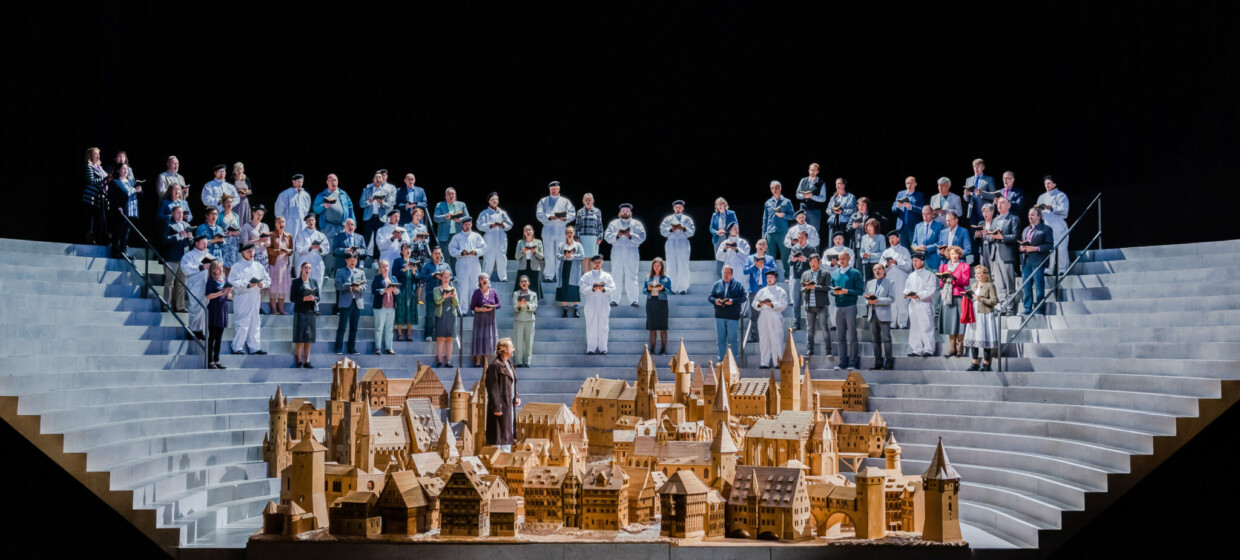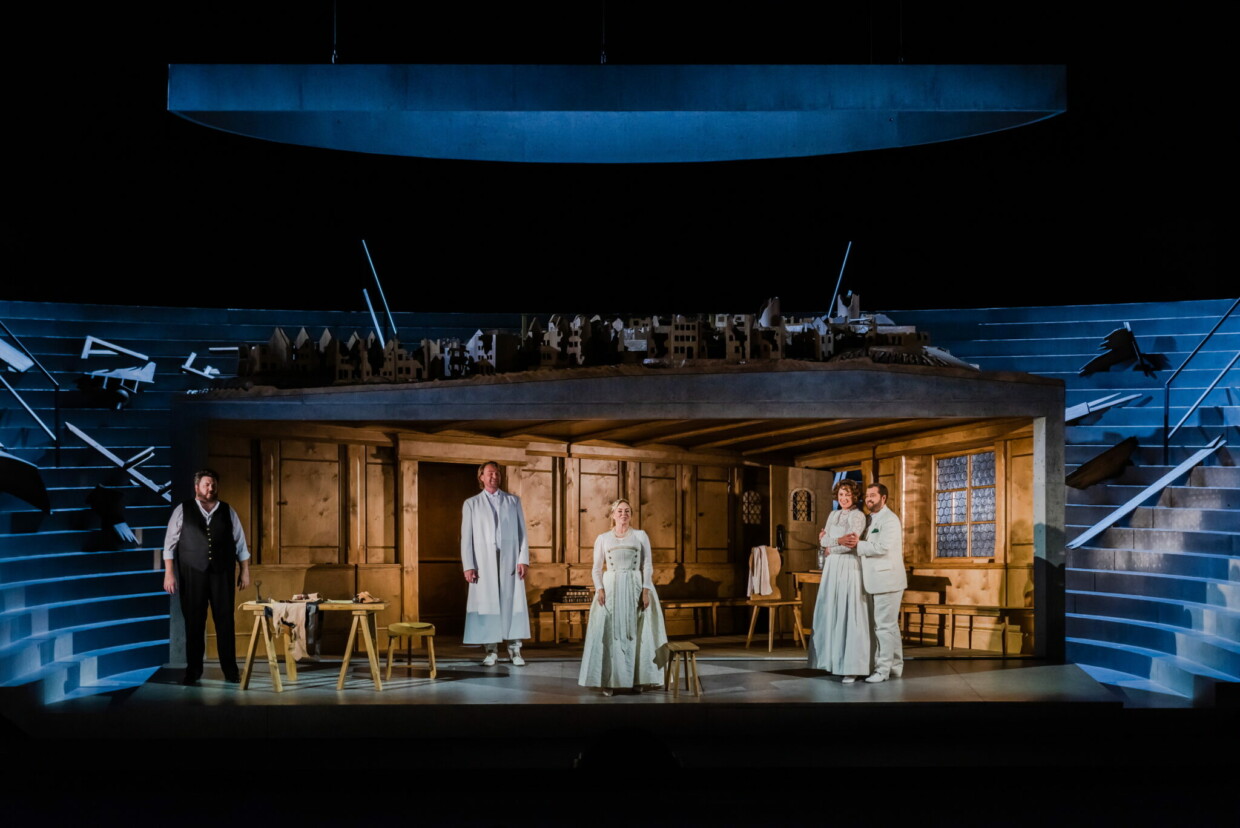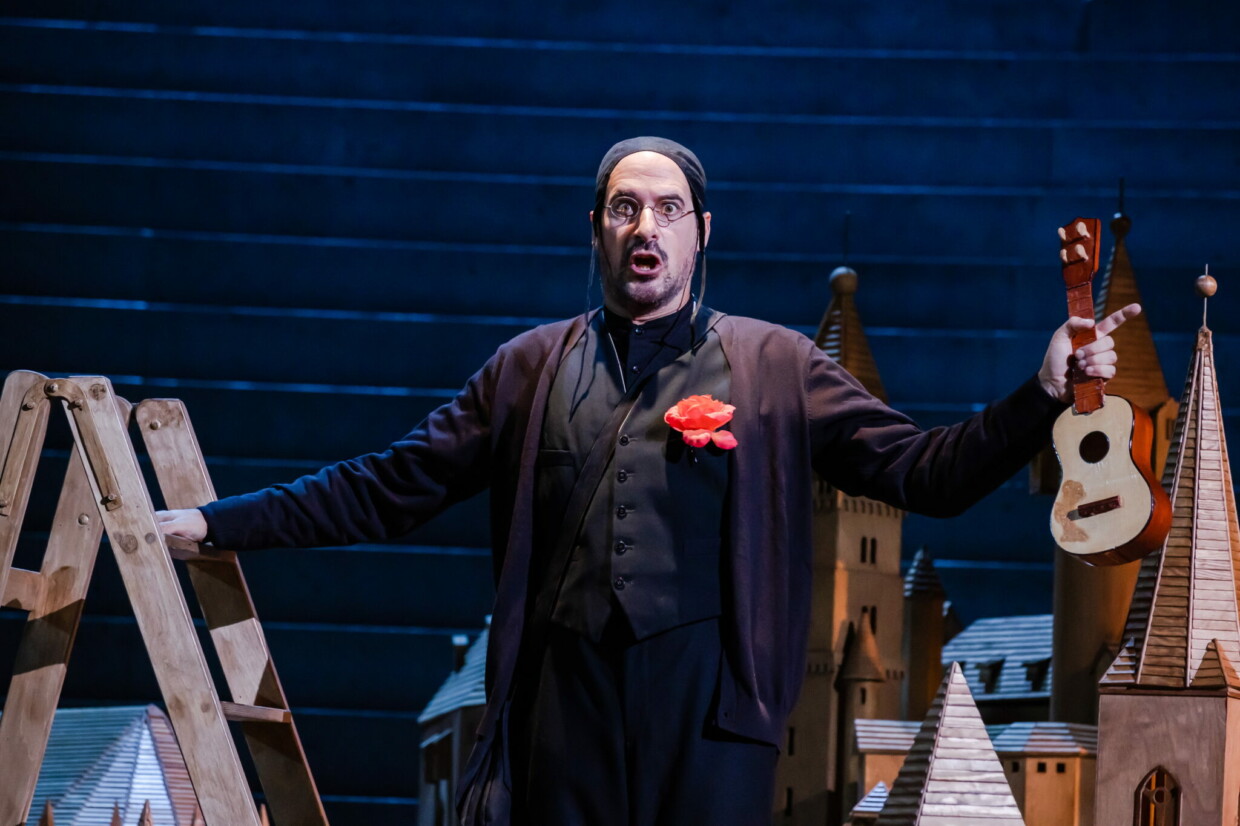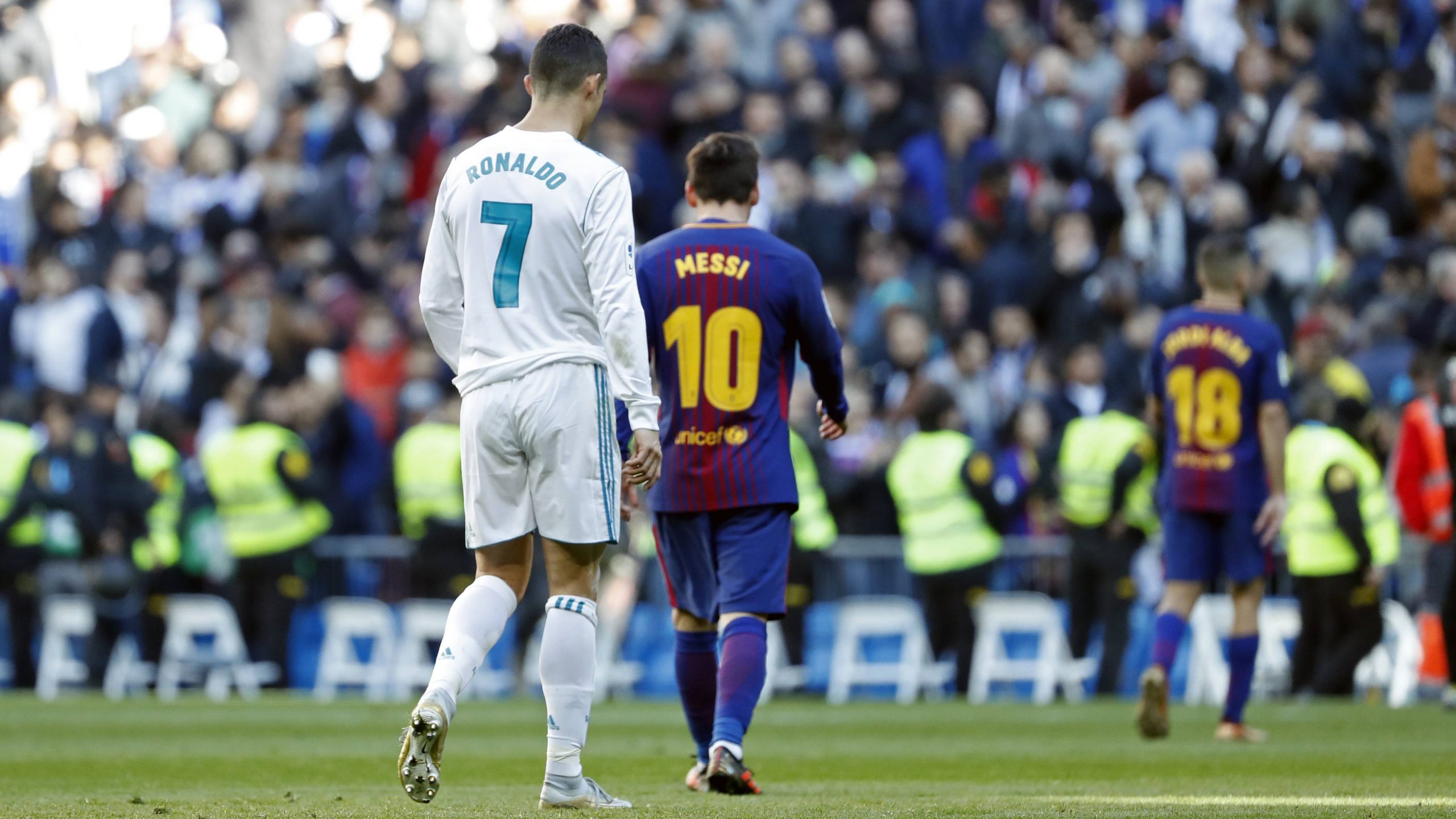(Leipzig, October 23, 2021) A milestone on the way to “Wagner 22” is celebrated: The Brit David Poutney looks at the most German, most comedic and most humane Wagner opera like from above. With the Gewandhaus Orchestra, Ulf Schirmer ensures a lively Wagnerian sound and exemplary verbal intelligibility.
Now only Katharina Wagner has to submit her “Lohengrin”, which has been delayed due to the corona. This coproduction with the Barcelona Opera is now coming out first in Leipzig. Then opera boss Ulf Schirmer has everything in place to present all of Richard Wagner’s operas in a marathon with his “Wagner 22” event. Such a unique and also a little megalomaniac show of strength definitely fits this Leipzig-born great composer. And Ulf Schirmer crowns his artistic director years in a spectacular way. As you know the international Wagner community, it will work!
1st act: pure picture book Middle Ages
So now “The Mastersingers of Nuremberg”. The artisan opera, in which German art and German itself are ultimately made so explicitly (by Wagner himself and by the history of reception) the topic that no director can avoid it today. Even if you just let the “What-German-and-real, -know-no-one-more” -pathos in Hans Saxony’s closing address were simply played off the sheet, that would be a statement. It is not reactionary per se. In Barrie Kosky’s Bayreuth production, Sachs gives his speech alone, directly to the audience. In Leipzig, the director David Pountney, as a British, as it were, is looking from above at the inherited Nuremberg idyll.
© Kirsten Nijhof
Set design from “The Mastersingers of Nuremberg”
–
From the steps of a semicircular amphitheater (stage: Laslie Travers), contemporaries of the audience in the hall look at a pretty wooden model of Nuremberg. Church towers as high as a man, half-timbering – the purest picture-book Middle Ages. Many of the Nuremberg people on stage have white overalls over their historical costumes, as if they were from forensics. The masters are different; Marie Jeanne Lecca has dressed them up as if they came from Albrecht Dürer’s tailor. An introduction according to the motto “Artist of the world, look at this city”, so to speak. Or the happening in an art academy that Stolzing snows into to meet Eva. In any case, you have to be careful where you step with so many steps and narrow streets à la model railroad. Nevertheless – the first act works in its open, audience-oriented way in this environment from the first note.
2nd elevator: change of perspective with reference to the present
In the second elevator, a hint of a giant door and a large window pane on the right and left ensure a change of perspective. When the beating scene begins, the two giant parts disappear towards Schnürboden, and on the steps of the semicircle a party dressed in black and red dress up against each other. A few irritated citizens in underwear get in the way and don’t know what happens to them in the middle of this sudden outbreak of violence. Involuntarily, one thinks of the police presence in downtown Leipzig, which secured a ban on demonstrations that had just been issued on the evening of the premiere. (That had nothing to do with the opera, but it was good for the undisturbed visit). After this stylized exaggeration of the brawl, it was foreseeable that everyone would go down to the call of the (war disabled) night watchman and the projection of a Nuremberg in ruins would lay over the scene.
© Kirsten Nijhof

Set design from “The Mastersingers of Nuremberg”
–
3rd act: Nuremberg rubble
In the third elevator, the ruins of Nuremberg can be found on the roof of a rather bluntly tumbling Franconian shoemaker’s room. Inside: pure farmhouse folklore, above: (metaphorically) the burden of the past in fretsaw format. Here Sachs and Stolzing sit together for the notes on the winning song that Beckmesser stole for his own fate. Here Eva Sachs once again gives the idea of advertising for her for a moment, here David is slapped in the face to the journeyman that he is thrown off his stool, and here the quintet is celebrated for the baptism of the winning song (a little too brash).
Pountneys Pointe
Finally everything disappears into oblivion in the open scene. Remnants still lying around are removed and a model of the Berlin Reichstag is set up as a platform for the singing competition. So we are with us in the present, that is to say. For the march of the guilds, the flag waving is replaced by a suggested dance show. For Hans Sachs, who was already consistently sympathetic, the fact that he was really surprised by the honor with his “Wach auf” chorus really surprised him. After Beckmesser’s disgrace, Stolzing appears all in white. Sing and win. On the stage and in the hall. When he turned down the offered championship honor, Hans Sachs in particular did not have too much trouble to quickly transform Walther’s (small) rebellion into his move to the side of the established. Pountney’s punch line is that Eva, and with her almost all women, turn away from this triumph of the existing order. Beckmesser’s problem, which Pountney brings in the vicinity of a (Jewish?) Outsider over long stretches, had taken care of itself by then. He fled after his unsuccessful performance, was no longer seen and is not returning.
© Kirsten Nijhof

Set design from “The Mastersingers of Nuremberg”
–
No Wagner singers? Are you kidding me? Are you serious when you say that!
Although Pountney provides the minimum level of political positioning that is inevitable in this country, it lags significantly behind the integration of the previous production by Jochen Biganzoli into German post-war history. The new “Mastersingers” are not completely apolitical, but with the built-in historically critical minimum they shouldn’t disturb anyone either. That this opera is, in addition to everything political, also Wagner’s most humane and most comedic piece, that is always clear. The intelligibility of words, which is otherwise hardly to be found anywhere else, was nothing short of exemplary. Even Ulf Schirmer’s gripping, fresh, sometimes comedically triumphant way of animating the Gewandhaus Orchestra to a lively Wagnerian sound, never overpowered it. The fear that one could still have when the overture literally flew around one’s ears with the curtains closed was forgotten at the first note sung.
© Kirsten Nijhof

Set design from “The Mastersingers of Nuremberg”
–
Seldom can one follow Eva and Magdalene to their word as much as with Elisabet Strid and Kathrin Göring. Matthias Stier literally surprised as a grandiose Belcantist David. Magnus Vigilius fascinated with his sovereign charisma and the relaxed style of playing of a Walther von Stolzing, which was also ideal in terms of looks. James Rutherford’s Hans Sachs combines eloquence and sovereign nobility without the old man’s attitude, which Sebastian Pilgrim as Veit Pogner consciously plays with. Mathias Hausmann designed (due to an indisposition) his agile Beckmesser as a perfect playback show, to which Ralf Lukas contributed the vocals from the side. Otherwise, there is always great singing and playing. Also from the choirs that Thomas Eitler-de Lint has rehearsed. No cheekers? Are you kidding me? Are you serious when you say that. They are in Leipzig. Undivided jubilation.
Leipzig Opera
Wagner: The Mastersingers of Nuremberg
Ulf Schirmer (director), David Pountney (director), Denni Sayers (choreography), Leslie Travers (stage), Marie Jeanne Lecca (costumes), Fabrice Kebour (lighting), Thomas Eitler-de Lint (choir), Elisabet Strid, Kathrin Göring, James Rutherford, Sebastian Pilgrim, Matthias Stier, Magnus Vigilius, Mathias Hausmann, choir & additional choir of the Leipzig Opera, Gewandhausorchester
–


